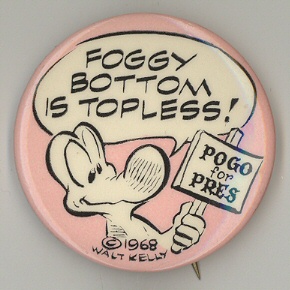
So I was standing in line at Starbucks, doing my usual coffee routine, and I saw one of the baristas, Carla, in the background taking orders for the drive-through. She’s talking on one of those hands-free headphone things, so I can only hear her side of the conversation:
“Is that you Barbara? How’s it going?”
…………………
…………………
“Awesome!”
………………….
………………….
“OK… Is that decaf? The usual?”
………………..
………………..
“Yeah, I know. That must have been great.”
…………………..
…………………..
“All right hon, that’s $4.50.″
The car drives up to the window, and I watch her conducting the transaction. As I walk over to the counter for milk, I hear Carla’s parting comment to the customer:
“Ok, see you soon. I love ya!”
What?
You could practically hear the dubbed-in record scratch as I did an audible double-take. Did she really just tell that customer that she loves her?
This blatant profession of love in the midst of public enterprise made me cringe—and melt, all at once. Part of me, the Jesus-Spirit-Christian part, wanted to wave palm branches in her general direction for establishing a new pinnacle of customer service. (Take that, Zappos!) But the buttoned-up business manager in me was tapping his foot, questioning the appropriateness of that exchange.
At first glance, there would typically be no call for expressing love while achieving your management objectives. Business is about process and profits, after all. And market share and competition. There’s nothing sentimental about it.
Plus, one generally attempts to portray some level of professionalism at work in order to maintain a commanding presence, or to earn the respect of colleagues. A measure of guardedness comes with the territory, especially for those in management positions (think Facebook vs. LinkedIn).
However, there’s no denying that our organizations are made up of people, not machines. All that equipment and technology—well, they don’t just work spontaneously of their own accord. It's the human beings who are running things, and at their core, people just want to be loved.
Martin Luther King once said, “Power without love is reckless and abusive, and love without power is sentimental and anemic.”
There is a lesson here for leaders.
We are all too familiar with the concept of power in business—the drive and resolve to get things done. None of us would be successful in our careers without some of that. But for too many, that’s where the discussion ends.
Plenty of research keeps cropping up showing that people at work are much more productive when they also feel cared for. Even loneliness, the perception of isolation or estrangement from others, has been shown to reduce an employee’s overall productivity, both in individual and group tasks. And it doesn’t take a PhD from Harvard to understand why. When you don’t fit in it makes you depressed, moody, negative.
Author Adam Kahane suggests that love, expressed as compassion and solidarity, is completely appropriate in business. But leaders must strive for a balance, he says. A system that follows only power will sacrifice its people, while a system that follows only the impulses of love will lose its competitiveness.
That's all well and good, but here's my takeaway: isn't love the ultimate link between our spiritual life and our work? Not Valentine’s Day love, but the every-day kind of love that says you care about the well-being of others. The kind that gives the best of yourself at work, in a compassionate and caring way. I suppose this is what Paul is talking about in I Corinthians 13, and it is more or less the main thing Jesus wants us to do.
When you strip out all the formalities and jargon of doing business, at the end of the day we are all just needy human beings trying to get stuff done. And I’m thinking, wouldn’t that really lift everyone’s spirits at work, if we tried to love each other?




